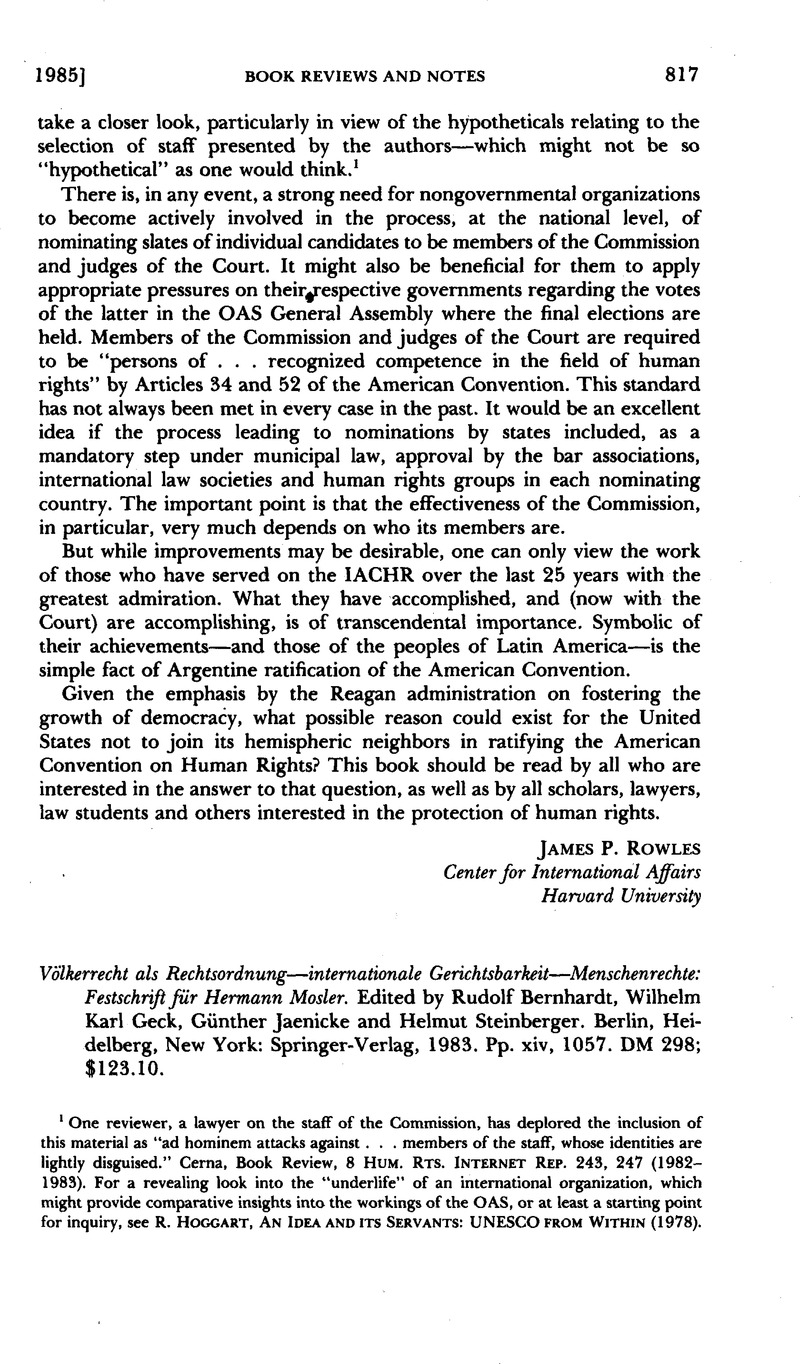No CrossRef data available.
Published online by Cambridge University Press: 27 February 2017

1 One reviewer, a lawyer on the staff of the Commission, has deplored the inclusion of this material as “ad hominem attacks against . . . members of the staff, whose identities are lightly disguised.” Cerna, , Book Review, 8 Hum. Rts. Internet Rep. 243, 247 (1982-1983)Google Scholar. For a revealing look into the “underlife” of an international organization, which might provide comparative insights into the workings of the OAS, or at least a starting point for inquiry, see Hoggart, R., An Idea and its Servants: UNESCO from Within (1978)Google Scholar.
1 “The decision of the Court has no binding force except between the Parties and in respect of that particular case.”
2 One can only imagine Fitzmaurice’s reaction to such new human rights as the “right to tourism” or the “right to sleep.” See Alston, , Conjuring up New Human Rights: A Proposal for Quality Control, 78 AJIL 607 (1984)CrossRefGoogle Scholar.
3 McDougal has written that the Universal Declaration “is now hailed as established customary law, having the attributes of jus cogens and constituting the heart of a global bill of rights”; and that “[i]t should be no cause for surprise that the great bulk of contemporary human rights prescriptions . . . should be widely regarded today . . . as among the principles clearly identified as jus cogens.”